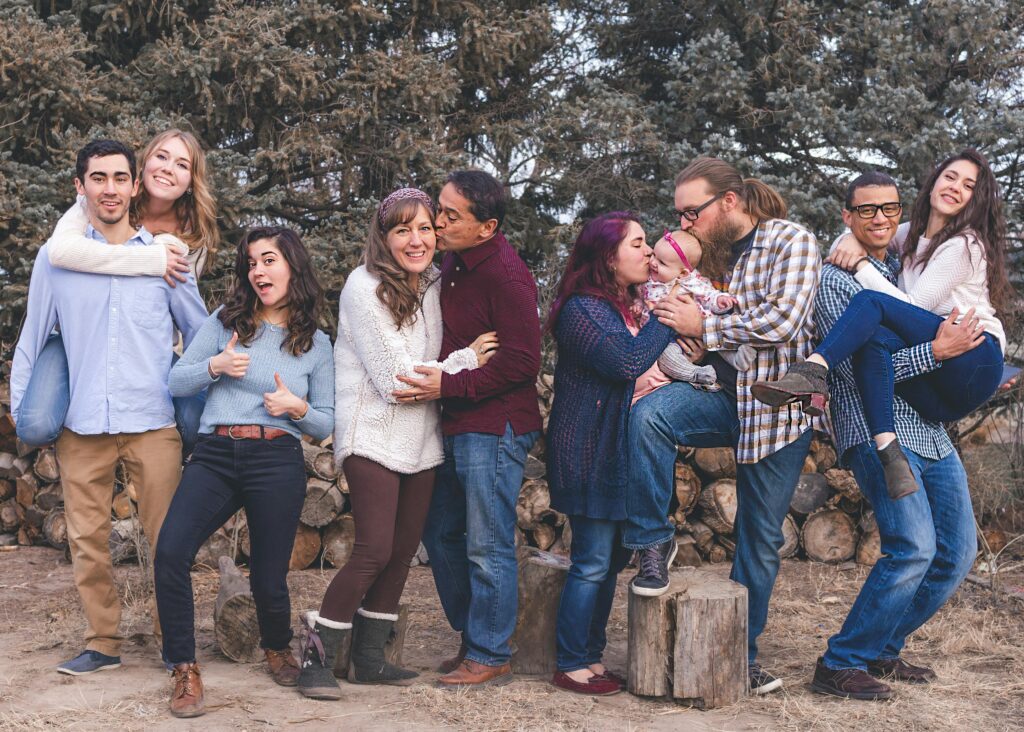The best way to split assets among your children and prevent them from fighting about it after you die is to have a comprehensive estate plan in place including a living revocable trust. Just like the saying “good fences make good neighbors,” and a clear contract makes a good business relationship, so does a living revocable trust ensure there is a clear boundary and written legally binding communication about what is going to where and to who, without any option for argument.

We cannot assume that everyone we love is going to get along after we are gone. In fact, we should assume the opposite will be true – because with the death of a loved one comes stress, with stress comes emotion, and with emotion comes situations where people let their repressed feelings out, and fight about things that are really not what they are actually upset about. Your children may fight over your stuff, but it won’t be about your stuff – it will be about some unsettled issue they had with each other or you while you were alive. So if you die without a comprehensive estate plan including a Living Revocable Trust, your family has to go to Probate Court to discuss your Will or your lack of a Will – it is exponentially more likely that things will result in conflict among them – because the adversarial nature of the Probate Court process encourages it.

Dying Without a Comprehensive Estate Plan in Place Invites Conflict into Your Family
As an estate planning attorney I have heard many stories about different family scenarios that went down hill. And every story that involves conflict starts with a parent or set of parents who believed they didn’t need to do an estate plan because “they told” their children what to do – and truly believed with the best intentions the children would or could listen. However, this is naive at best. Especially in blended families where you have second marriages, half siblings, and other opportunities for differing scenarios of what Mom and or Dad wanted. So for the sake of clear communication overriding feelings about what is fair or unfair, true or untrue, or the unexpressed emotions and conflicts between siblings just waiting to explode – please listen to me when I say, the ONLY WAY to ensure there is no conflict after your death is to distribute your estate via a living revocable trust and to communicate about your wishes with your children before you die.
It is too common for siblings to not talk about deep seated issues of rivalry, favoritism, or other issues stemming from how they perceived they were treated by parents. Moreover, in blended families where you have older siblings from prior relationships, one set of children may never have lived with the other and have no sense of familial relationship. Further, you may have a situation where there might just not be a relationship at all between the half or step siblings (at best) or (at worst) there is blatant animosity. These are highly risky scenarios where you can’t leave it up to the conscience of your loved ones “to do the right thing” because they do not know what the right thing is! Each one of them are justified in their own perspective and you are dead. As a result, in many real life scenarios it involves your children fighting over your property after your death, and/or extremely hard feelings.
So what does a comprehensive trust based estate plan look like? It includes a Living Revocable Trust – which is a private contract that appoints a trustee to distribute your property according to a clear set of instructions. Second, it involves you working with an attorney to ensure that all of your property is properly put in the trust while you are alive. And finally it involves you having a sit down with each of your children individually or as a group and telling them how the trust will work upon your death. But primarily it means you do not leave things to chance and the courts.

What is Probate Court? And Why You Should be Concerned About It
Probate Court is the place your assets go to change title after you die if you have only a Last Will and Testament in place or no Will at all. Your estate goes to Probate Court regardless if you have a Will or no Will. If you have a Will you have left a final testimony to the court about where you want your assets to go and to who, versus if you die without a will a state law (called an intestate statute) will determine how your assets are divided. However, in both cases the determination can be contested, and anyone (even non-family) can throw their hat in the ring to turn an administrative proceeding into expensive legal battle. And who foots the bill for this legal battle? Your estate, and your children who decide to engage in it! Probate Court costs on average 5% the value of the estate left behind. So that means a
$500,000 estate could cost $25,000 to probate. But that statistic is not always the case, sometimes it costs more. From personal experience, it cost my partner over $45,000 to probate his mother’s uncontested and extremely modest estate in Washington – and he is still unclear what he got from that investment besides legal bills to this day. If she had a comprehensive estate plan in place it would have cost him nothing out of pocket, and he would have had time and space to grieve her loss properly. Instead his last memories of his mother are blended with a combination of pain and resentment for the mess she left behind.

Dying in a way that allows the courts and the state into your life after death is inviting significant cost, effort, and ill feelings into your family’s life after you die. Why not choose instead to have everything set up in a way that allows them the space to grieve and not have to worry about court and hassles? Further, choosing to privatize your estate with a Living Revocable Trust ensures that your family does not have to go to Probate Court, thus minimizing the opportunity for conflict significantly.
Less than 25% of Adults have Any Type of Estate Plan in Place – Don’t Let this be You
The cost of dying without an estate plan in place is significant to your loved ones. Dying without a plan in place leaves your estate in “default” mode and leaves your family in a place of confusion and disarray on top of grief. This will result in hard feelings and resentment – on top of lost time, money and energy. As in, in the wake of your death they will be forced to hire a Probate attorney to help them navigate a challenging bureaucratic system that is foreign and makes no sense to the untrained person. Probate attorneys are not bad people, in fact most of the time they are very nice people, however, you never want to leave your family in a situation where they need to hire a Probate Attorney to ensure they can access your property at your death. The best thing you can do to alleviate any concern of conflict is to look for a holistic estate planning attorney who can help you make sure, while you are alive, that you have a comprehensive estate plan that will make things as easy as possible for your family after you are gone.

Contact an Estate Planning Attorney Today
Determine the Best Plan for Transferring Your Assets to Your Loved Ones After you Die Without Conflict
It is never too early to plan, but it can always be too late. So if you do not have a plan in place, or if you just have a will, or your will is very old, click on the link below to book a complimentary consultation with our law office and we can walk you through the best options for your unique assets and family situation.



